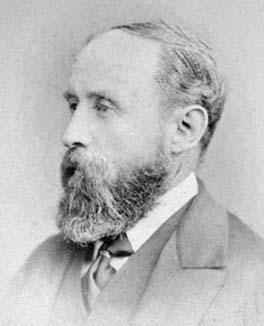


 تاريخ الرياضيات
تاريخ الرياضيات
 الرياضيات في الحضارات المختلفة
الرياضيات في الحضارات المختلفة 
 الرياضيات المتقطعة
الرياضيات المتقطعة
 الجبر
الجبر
 الهندسة
الهندسة 
 المعادلات التفاضلية و التكاملية
المعادلات التفاضلية و التكاملية 
 التحليل
التحليل
 علماء الرياضيات
علماء الرياضيات |
Read More
Date: 13-11-2016
Date: 13-11-2016
Date: 12-11-2016
|
Died: 15 February 1900 in Hampstead, England

John James Walker's father, John Walker, was the headmaster of various schools. In fact Walker attended London High School, the school at which his father was then headmaster until his father moved to become headmaster of Plymouth New Grammar School. Walker completed his school education at Plymouth New Grammar School before entering Trinity College Dublin as an undergraduate.
Although his father's family were originally from Yorkshire, several generations had lived in Ireland. His mother's family were English but Walker followed his father's family tradition in attending Trinity College Dublin. Walker's grandfather had been a fellow of Trinity and published classical texts as well as elementary mathematics and logic texts.
Things were not entirely straightforward for Walker at Dublin for his family had ceased to be conformists so he was debarred from holding a scholarship. To add to his problems his father died young and Walker was left having little in the way of funds to see out his education. However he excelled at Trinity College, winning gold medals for both mathematics and physics as well as winning other distinctions.
After Walker graduated he became tutor to the Guinness family, a wealthy Irish family who had made their money from brewing. Arthur Guinness bought a small brewery in Dublin which began brewing a dark beer with a rich head in 1799; this became the national beer of Ireland. Walker became a private tutor to the family in 1853, two years before the death of the founder Arthur Guinness, and he continued as a tutor until 1862.
Walker returned to England and, from 1865, he worked in London as a lecturer in applied mathematics and physics at University College. In the same year 1865 he joined the newly formed London Mathematical Society and he was the president of the Society in 1888-90. Walker was honoured with election as a fellow of the Royal Society in 1883. However his post at University College ended in 1888 and after that he devoted himself to mathematical research without holding any further jobs.
The range of Walker's mathematical research was quite impressive. He wrote some articles on theoretical mechanics but his more elaborate papers were on advanced algebra and geometry. Walker was a strong advocate of Hamilton's quaternions and strongly believed that they had not been given as wide a use as they merited. He applied quaternions to a variety of problems, mostly of an elementary nature.
The three most important papers that Walker wrote were on the analysis of plane curves and curved lines. The papers were closely connected and all appeared in the Proceedings of the London Mathematical Society. He wrote further articles on cubic curves and in this area he wrote the memoir On the diameters of cubic curves which was published in the Transactions of the Royal Society in 1889.
Walker's character is described in [1] in the following terms:-
Mr Walker was of a reserved temperament, marked by somewhat precise courtesy of manner which seemed to belong to a bygone generation. His real kindness was shown by genial estimates of character and liberal appreciation of the labours of others engaged in kindred studies.
It is an interesting thought what someone writing in 1901 about 'courtesy of manner which seemed to belong to a bygone generation' might think of Walker now, almost 100 years later.
Articles:



|
|
|
|
التوتر والسرطان.. علماء يحذرون من "صلة خطيرة"
|
|
|
|
|
|
|
مرآة السيارة: مدى دقة عكسها للصورة الصحيحة
|
|
|
|
|
|
|
نحو شراكة وطنية متكاملة.. الأمين العام للعتبة الحسينية يبحث مع وكيل وزارة الخارجية آفاق التعاون المؤسسي
|
|
|